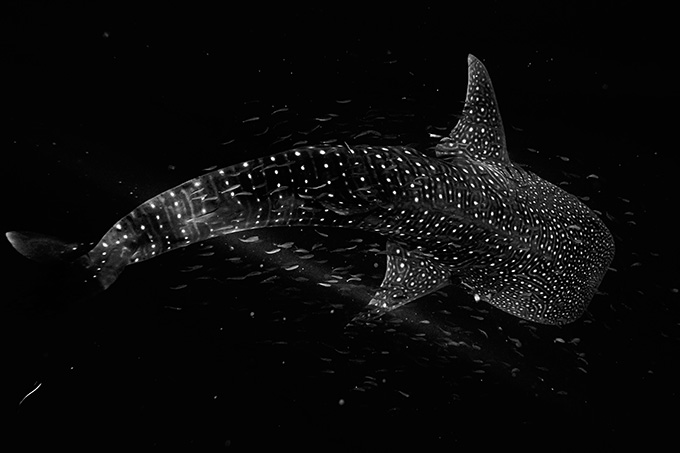Just as rolling at a fuel station during a road trip, whale sharks use oil and gas equipment as a stop during migrations of thousands of kilometers across the oceans. Human-made structures attract marine life-including shark’s favorite snack: plankton. But experts are worried that this allure could be at risk of being struck by ships or chemical pollution.
Satellite tracking of whale sharks off the coast of Western Australia shows how oil and gas platforms affect the movements of these soft giants, marine ecologist Ben D’Antonio and colleagues report January 18 Diversity and distributions. “As they migrate beyond the ocean, they are stopping and moving among the features to catch a light meal before they continue migrating them,” says D’Antonio, of the Australian Institute of Maritime Sciences (AIMS) and the University of Western Australia in Pendant
The largest fish on the planet (Rhincodon tipus) – reaching up to 18 meters long – munch through 20 pounds of plankton daily. Oil and gas dresses act as artificial reefs, creating many prey to attract sharks.
“Think about the features of the sea as a truck stop on a highway,” D’Antonio says. “On family holidays, we often withdraw to truck stops to light and catch a bite quickly before [heading] to our final destination. Whale sharks seem to be using sea features in a similar way. “

Over the course of 14 years, researchers labeled 78 balane sharks, traced their movements, and controlled the location of geomorphological traits to see how these affect the paths of sharks. While natural points, canyons and sea seas also act as stops, this seduction towards oil fraud – perhaps strengthened by pulling plankton to platform light rays – could greatly endanger the filter -hit feeders by a ship or oil pollution sheds or discharges. It is impossible to know exactly how many are being killed by ships because their bodies sink without trace
The authors hope that this finding will help decision makers manage protected marine areas and raise awareness of the potential impact on marine life when building man -made platforms or new structures, such as offshore wind turbines. “This will become more important as developments for renewable energy begin to add additional structure in many areas along the continental borders,” D’Antonio says.
#Migratory #whale #sharks #potholes #stops #oil #gas #equipment
Image Source : www.sciencenews.org